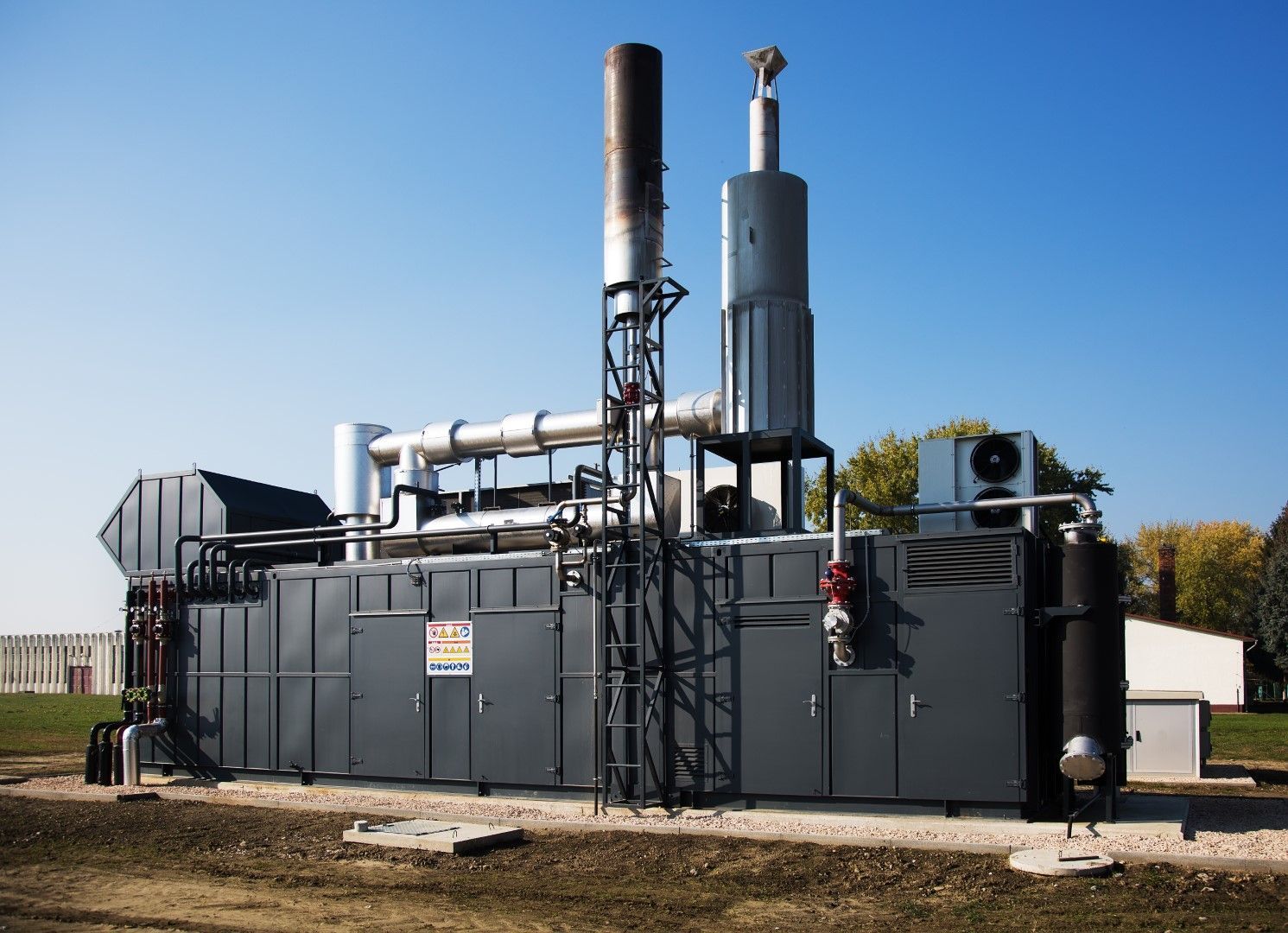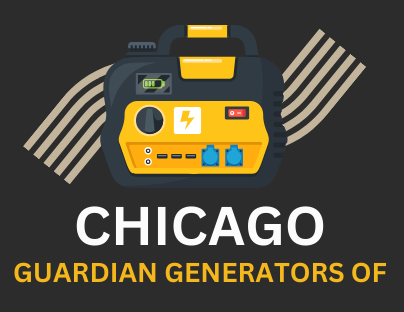Commercial Generators in Chicago IL
A commercial generator is a robust power supply system designed to provide electricity for businesses and large facilities. Unlike residential generators, commercial models are built to handle higher loads and offer a reliable backup during power outages. These generators ensure that essential operations continue without interruption, safeguarding business continuity and protecting sensitive equipment.
Types of Commercial Generators
Commercial generators come in various types, each suited to different needs. The main categories include:
- Diesel Generators: Known for their durability and fuel efficiency, diesel generators are a popular choice for businesses requiring reliable, long-term power solutions.
- Natural Gas Generators: These are favored for their cleaner operation and lower emissions, making them an eco-friendly option for businesses.
- Propane Generators: Propane generators offer flexibility and can be a good choice for locations where natural gas is not available.
- Dual-Fuel Generators: These generators can run on both diesel and natural gas, providing additional flexibility and reliability.
Installation and Space Consideration
Proper installation of a commercial generator is crucial for optimal performance. This involves selecting an appropriate location that allows for adequate ventilation and access for maintenance. Installation professionals must consider factors such as noise levels, exhaust emissions, and proximity to sensitive areas. The generator should be installed on a stable foundation to prevent vibration and potential damage. Planning for space around the unit is essential to ensure that maintenance tasks can be performed safely and efficiently.
Automatic vs. Manual Controls
Commercial generators can be equipped with either automatic or manual controls.
- Automatic Controls: These systems automatically detect power outages and switch on the generator without human intervention. Automatic controls are ideal for businesses that require a seamless transition to backup power, ensuring minimal disruption.
- Manual Controls: Manual systems require someone to start the generator manually in the event of a power outage. While typically less expensive, they require someone to be present and aware of the outage to activate the generator.
Choosing between automatic and manual controls depends on your business’s specific needs and how critical it is to have immediate power restoration.

Uninterrupted Business Operations
Having a commercial generator ensures that your business remains operational during power outages. This is particularly important for industries that rely on continuous power, such as healthcare facilities, data centers, and manufacturing plants. By providing an uninterrupted power supply, commercial generators protect your operations from the disruptions caused by electrical failures and help maintain productivity and safety.
Compliance with Regulations
Commercial generators must comply with local regulations and codes. This may include emission standards, noise level restrictions, and safety requirements. It’s essential to work with a licensed professional who understands these regulations to ensure your generator meets all legal requirements and operates within permissible limits. Compliance helps avoid potential fines and ensures the safety of your business and its surroundings.
Maintenance and Care
Regular maintenance is vital for keeping commercial generators in good working condition. This includes routine inspections, oil changes, and filter replacements. Maintenance schedules should be followed according to the manufacturer’s recommendations to prevent unexpected failures. It’s also important to test the generator periodically to ensure it starts and operates correctly. Proper care helps extend the lifespan of the equipment and ensures reliability when it’s needed most.
If you need a reliable
commercial generator in Chicago, IL, don’t hesitate to reach out. Our team is here to help you choose the right generator, handle installation, and provide ongoing maintenance to ensure your business stays powered and operational. Contact us today to discuss your needs and get a customized solution that fits your business requirements.
Clues You Should Consider Installing a Commercial Generator

In today’s business environment, a reliable power supply is essential. Power outages can disrupt operations, cause financial losses, and impact your reputation. This is where a commercial generator comes in. Installing a generator can ensure that your business remains operational during power failures. In this post, we'll explore the signs that indicate it might be time to consider installing a commercial generator for your business.
Frequent Power Outages
If your business location experiences frequent power outages, a commercial generator can provide a reliable backup. Regular disruptions can hinder productivity and affect customer service. A generator can keep your systems running smoothly, ensuring you don’t lose valuable data or face downtime.
Critical Operations and Equipment
Businesses that rely on critical equipment or processes need to ensure continuous power. For instance, hospitals, data centers, and manufacturing facilities cannot afford to have their operations interrupted. If your business depends heavily on specific machinery or systems, a generator can offer peace of mind by keeping everything operational during power failures.
Unreliable Power Supply
If you notice fluctuations in your power supply, such as surges or dips, it’s a sign that you might need a generator. Power quality issues can damage sensitive equipment and lead to costly repairs. A commercial generator can help stabilize your power supply, protecting your equipment and reducing maintenance costs.
Business Expansion or Changes
As your business grows or undergoes changes, your power needs may evolve. New equipment, additional staff, or expanded facilities can increase your energy demands. Installing a generator as part of your expansion plans can ensure that your power supply keeps pace with your business growth, preventing future disruptions.
Regulatory and Compliance Requirements
Certain industries have strict regulatory and compliance requirements regarding power continuity. If your business falls under such regulations, installing a commercial generator might be necessary to meet these standards. Generators can help you maintain compliance by providing a backup power source during outages.
Customer Expectations
For some businesses, maintaining a continuous service is crucial to meet customer expectations. If your customers expect uninterrupted service, such as in retail or customer support sectors, a commercial generator can help you meet these expectations by ensuring that power outages do not affect your operations.
Previous Outage Impacts
Reflecting on past power outages can also indicate the need for a generator. If you’ve experienced significant losses or operational challenges due to previous outages, it’s a clear sign that investing in a generator could prevent future issues. Learning from past experiences can help you make informed decisions about your power needs.
If you recognize any of these signs and are considering installing a commercial generator, we’re here to help. Our team of experts can assess your needs and recommend the best generator solutions for your business. Contact us today to discuss your requirements and ensure that your business stays powered up and operational, no matter what challenges come your way.
Choosing the Right Generator for Your Commercial Property
When it comes to maintaining the smooth operation of a commercial property, a reliable power supply is essential. Power outages can disrupt business activities, impact customer satisfaction, and lead to financial losses. To safeguard against these issues, having a dependable generator is crucial. Choosing the right generator involves considering several factors to ensure that it meets the specific needs of your commercial property. This guide will help you navigate the process of selecting the ideal generator, so you can make an informed decision that supports your business’s continuity and resilience.
Determine Your Power Requirements
The first step in selecting a generator is to assess your power needs. Evaluate the electrical load of your commercial property by calculating the total wattage required to run all critical equipment, lighting, and other essential systems during a power outage. This calculation will help you determine the generator's capacity needed to keep your operations running smoothly.
Consider Generator Types
Generators come in various types, each suited for different applications. The main types are portable, standby, and commercial-grade generators. Portable generators are typically used for smaller applications or temporary needs. Standby generators are permanently installed and automatically start when the power goes out. For larger commercial properties, a commercial-grade generator offers high power output and durability, making it a suitable choice for extensive operations.
Evaluate Fuel Options
Generators can run on different types of fuel, including diesel, natural gas, propane, and gasoline. Each fuel type has its advantages and considerations. Diesel generators are known for their reliability and long run times, making them a popular choice for commercial settings. Natural gas and propane generators offer cleaner energy and are often preferred for their convenience and reduced environmental impact. Consider the availability and cost of fuel in your area when making your choice.
Assess Generator Size and Placement
The physical size of the generator and its placement are important factors to consider. Ensure that the generator fits the designated space and that there is adequate ventilation for proper operation. Additionally, consider the noise level of the generator, as a quieter model may be more suitable for commercial properties where noise can be a concern.
Check for Compliance and Certifications
Verify that the generator meets local regulations and industry standards. Compliance with these regulations ensures that the generator operates safely and efficiently. Look for certifications and endorsements from reputable organizations that indicate the generator has passed quality and performance tests.
Plan for Maintenance and Support
Regular maintenance is essential to keep your generator in optimal working condition. Choose a generator from a manufacturer or supplier that offers comprehensive maintenance and support services. This includes routine inspections, repairs, and access to replacement parts. A reliable support system will help you address any issues quickly and minimize downtime.
Selecting the right generator for your commercial property can be a complex decision, but with the right guidance and support, you can find a solution that meets your needs effectively. If you have any questions or need assistance in choosing the perfect generator for your property, don’t hesitate to reach out to us. Our team of experts is here to help you make an informed choice and ensure that your business remains powered and protected. Contact us today to discuss your generator needs and discover how we can assist you in securing a reliable power source for your commercial property.
